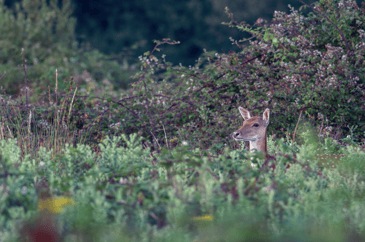Tim Bonner: Animal rights group promotes...
Yesterday, The Times newspaper published a story about the use of thermal imaging drones being used...
about this blogRead moreWhat do we mean when we talk about animal sentiece, animal welfare and animal rights? James Legge, Director of Public Affairs at the Countryside Alliance explains more in this article from the Winter issue of My Countryside magazine.
Sentience is often framed in terms of a principle. Proponents of the current Animal Welfare (Sentience) Bill often talk of enshrining the principle of animal sentience in law. This is misleading because sentience is not a principle but a matter of fact. Animals are either sentient or they are not. Which animals are deemed sentient, and to what degree, remains a matter of scientific investigation and debate. At its simplest, sentience is the ability to experience pleasure and pain. It is generally associated with human beings and animals which enjoy a level of neurological and brain development which enable them to distinguish both positive and negative experiences. It implies something more than just instinctive response to positive or negative stimuli.
As human beings, we can only observe the external responses of animals and from that extrapolate whether the experience was positive or negative. For those of us who own dogs or care for livestock it is clear that animals do experience pain and pleasure and we can see this in behavioural terms, even if we cannot know how an animal may understand the concept or experience of pleasure or pain. It is also important to understand that domestic and wild animals live in different states, with their experiences and reactions to various stimuli also being very different. It has long been assumed that vertebrate animals are sentient, but more recent research, especially into animals like squid, octopus and lobsters suggest that they too may have a level of awareness that means they might be considered sentient. This is a rapidly changing area of science and there is a view that there is probably a scale of sentience depending on the degree of an animal's evolution. It is reasonable, scientifically speaking, to believe that primates are sentient in a way that a flea is probably not. What matters though is not which animals are deemed sentient but what recognition of sentience means for our relationship with those animals. This is where the question of animal welfare, as opposed to animal rights, arises.
Rights go with responsibilities. Humans have rights because they have responsibilities and can be held to account for their actions. The concept of rights requires the concept of moral agency, the ability to choose right from wrong. What is right and wrong is not solely determined by what is in an individual's self-interest. Human beings often act against their own self-interest because it is the right thing to do. We do not simply act according to instinct, or to minimise pain and maximise pleasure. Animals, by contrast, generally act according to instinct, and as far as we know without the conceptual understanding, or moral concept, of right and wrong. A fox who kills a chicken to eat, and then kills the remainder in the coup for 'fun', is not culpable of any offence. If a human being were to behave in the same way they would be culpable of various offences, including theft, criminal damage and probably offences against animal welfare for causing unnecessary suffering.
As such, animal welfare is what matters, not animal rights. We have a duty of care to animals, especially those for which we are responsible, coupled with a duty to avoid causing any unnecessary suffering; the legal definition of cruelty. These duties arise because we have moral agency and can be held to account for our actions. Animals do not share that accountability, at least in the same way, and therefore do not enjoy rights in the same sense that we do. That does not mean that we can treat animals as we please, indeed our duty to animal welfare is all the greater because of our moral agency and understanding. However, to attribute rights to animals in the same sense as we enjoy rights is simply wrong. Animals have rights because we have a duty to them and to ensure their welfare in our relations with them. If animals have rights as we do, then we could no longer accept the eating of meat or the keeping of pets. The former would be the equivalent of murder and the latter a form of slavery, a view that would be held by animal rights thinkers, such as Peter Singer. Such a view would be harmful to the wellbeing of both humans and animals, sentient or not.

Yesterday, The Times newspaper published a story about the use of thermal imaging drones being used...
about this blogRead more![[Political]](https://www.countryside-alliance.org/hs-fs/hubfs/Imported_Blog_Media/British_Houses_of_Parliament-Mar-30-2023-09-08-25-7348-PM.jpg?width=365&name=British_Houses_of_Parliament-Mar-30-2023-09-08-25-7348-PM.jpg)
We must not let the government's animal welfare legislation become a vehicle for the animal rights...
about this blogRead moreThe Welsh Government has raised concerns about the use of "Mobile Animal Exhibits" in Wales and...
about this blogRead moreThis exclusive resource is specially curated for those who share our passion for the countryside. As a member of the Countryside Alliance, you already have access. Not a member yet? Unlock this content by entering your details below to gain access to exclusive resources. Want to join a community of like-minded individuals. Explore our full range of membership options and benefits at the Countryside Alliance.